Children conceived as a result of rape will soon be recognised as victims of crime in England and Wales, the government says. Here, people share their stories of being born to mothers who were raped - and explain why they refuse to let the past dictate their lives.
Dear Tas,
You are now 10 days old but when you read this you may be much older.
I love you so much.
Tasnim feels her eyes sting with tears as she reads her mum Lucy's diary for the first time. She had no idea the journal existed, let alone survived the fire that killed Lucy when Tasnim was just a baby.
A faint burn mark on Tasnim's cheek is the only visible scar of what happened that night. As the flames engulfed the house, Tasnim's dad had carried her to safety, wrapped in a blanket and placed her under an apple tree in the garden.
He saved her life - but he was the one who had poured the petrol and lit the blaze, which also killed Tasnim's aunt and grandmother.
Tasnim always knew her dad was a convicted murderer serving life in prison.
But the diary - which lay forgotten in police storage for 18 years until Tasnim asked to see the evidence files in her mum's case - contains another devastating revelation.
As Tasnim reads, it dawns on her that she was born as a result of her father sexually abusing her mum.
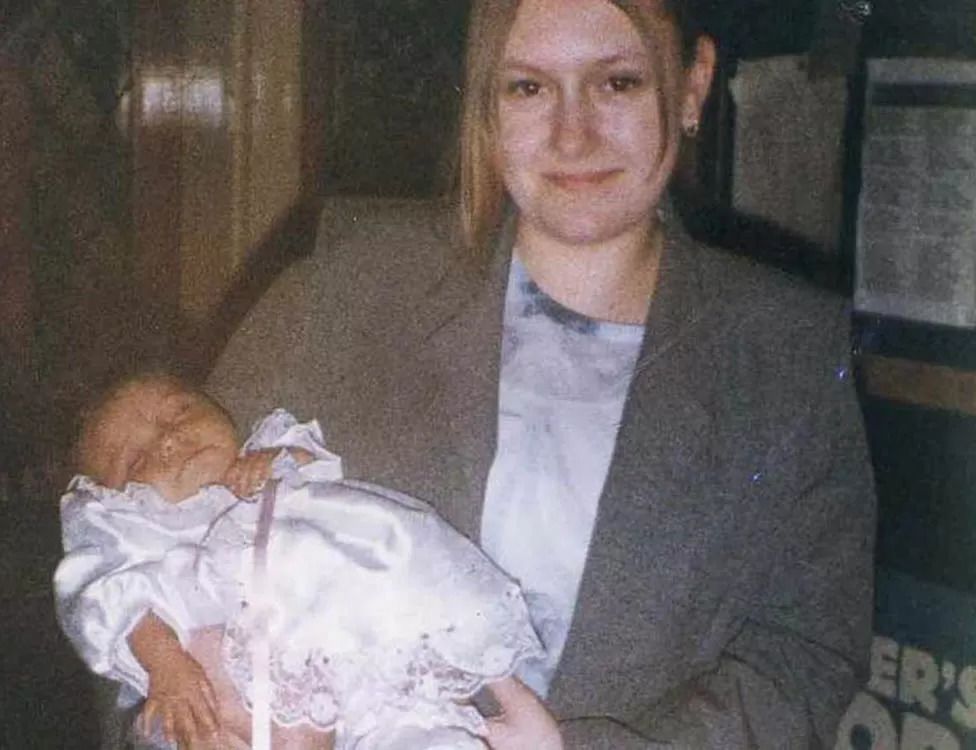 Lucy, from Telford, Shropshire, was just 15 years old when she died
Lucy, from Telford, Shropshire, was just 15 years old when she died
Alongside Lucy's hopes and dreams for the future, the pages detail her secret suffering. She had been groomed and abused from the age of 12 by Tasnim's father, taxi driver Azhar Ali Mehmood, who was 10 years Lucy's senior.
The truth leaves Tasnim reeling. She feels as if she is the only person in the world going through this. But research suggests she is far from the only one.
It is difficult to say how many people in the UK are born from rape and abuse, but estimates by Durham University and the Centre for Women's Justice suggest up to 3,300 women may have become pregnant as a result of rape in England and Wales in 2021 alone.
The forthcoming Victims Bill covering England and Wales will officially classify children conceived as a result of rape as victims of crime, the government says. This will, according to ministers, entitle them to extra support - including therapy and counselling as well as access to information about their case. They are also promised "greater recognition" from services around alcohol and drug dependency, education and housing benefit.
But with no charities or support services dedicated to the children of rape victims in the UK, those like Tasnim have often been left to navigate complicated emotions without specialist help.
"You want to imagine that your parents are happily in love," she says.
"It alters everything you know, and how you perceive things about your family and about yourself. Because I'm related to a murderer, and also a rapist. And I used to think horrible things like, what if I grow up to be like him?"
Some of the diary is too painful for Tasnim to read. She tries to focus on the love for her that is so clear in Lucy's diary. Its pages are full of poems and stories of their life together.
"I shouldn't feel bad about myself, because she wouldn't want that," Tasnim says.
Neil takes a deep breath and opens the envelope.
Growing up adopted in Ilkley, West Yorkshire, Neil - who uses they/them pronouns - had a happy childhood, but was always curious about their birth mother. They pictured a fairytale princess and dreamed they would one day be reunited.
Now, at the age of 27, Neil opens the letter from the private detective they hired to find her. But as they read, it feels as though a chasm is opening up and they are in free fall.
Neil's mother was raped by a stranger in a park when she was a teenager. Neil was born as a result.
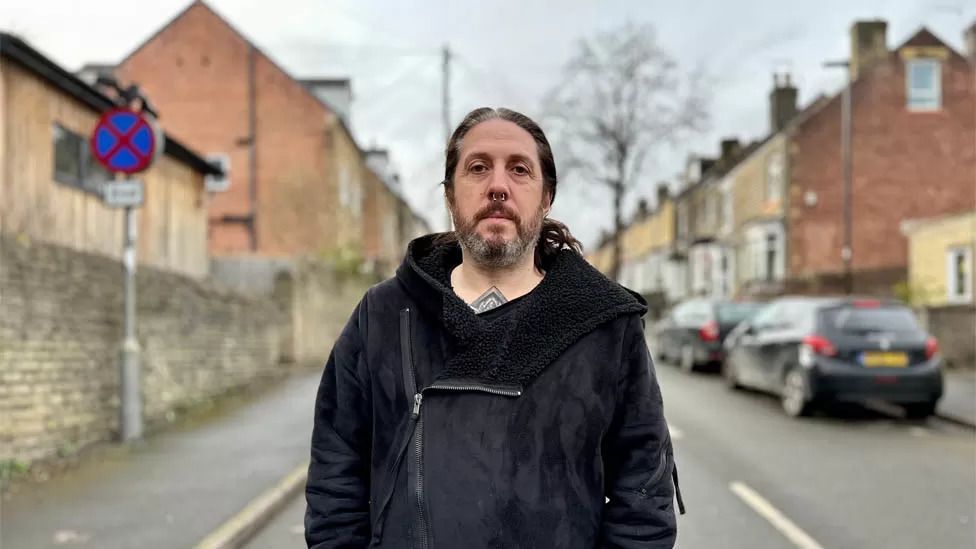 Neil
Neil
"Nothing can prepare you for those words," Neil says.
Finding out they had been conceived in such a violent, hateful way feels, "almost like somebody's punched into your chest and ripped your insides out".
Neil adds: "You feel shame, you feel grief, you feel confusion. All the darkest, most awful feelings you can have about yourself. And I just broke down."
Everything Neil thought they knew about themself has been ripped away. They cannot look in the mirror, fearing the face of the unknown attacker is looking back.
What does it mean to be born from violence, not love? And will Neil's birth mother ever be willing to meet?
Tasnim feels her heart pounding in her chest as the heavy prison door slams shut behind her. A guard leads her into a small, cold room. A table and two chairs are waiting.
A door on the other side of the room opens and Tasnim sees her father for the first time. Dressed in a grey prison tracksuit, he is shorter than she imagined.
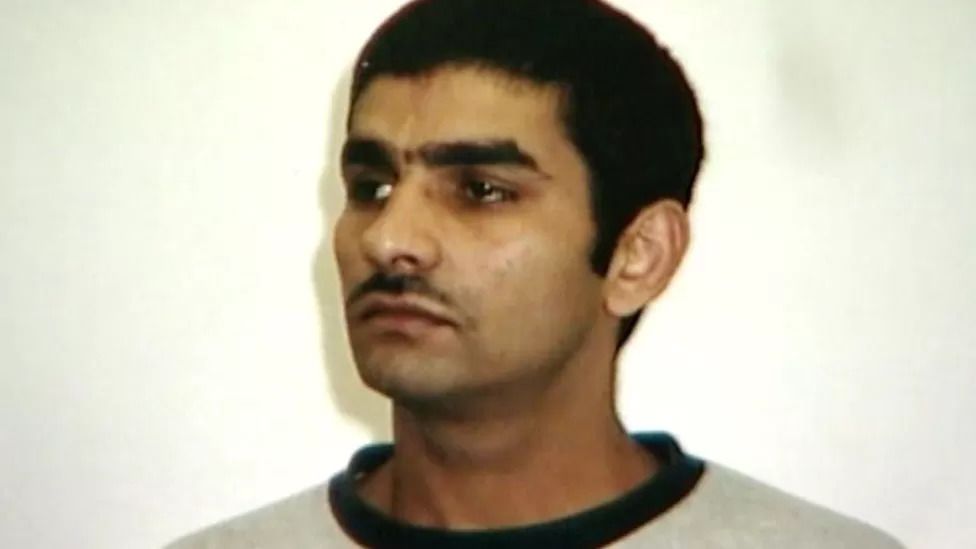 Azhar Ali Mehmood was jailed in 2001 for three counts of murder and one of attempted murder
Azhar Ali Mehmood was jailed in 2001 for three counts of murder and one of attempted murder
But his demeanour is large. It fills the room. He hugs her. He has bought her a chocolate cake. To "celebrate".
This is not what Tasnim wanted. She wanted to be the one in control. She wanted him to understand the impact of what he did.
But now she sees for herself the man who manipulated and controlled her mother.
Tasnim walks away from the prison and never goes back. She has all the answers she needs.
Waiting outside the train station to meet their birth mother for the first time, Neil's stomach is doing nervous somersaults. They have thought so many times about this moment, rehearsing what to do and what to say.
As soon as she appears, Neil knows it is her.
The two look into each other's eyes. Neil feels just as anxious on her behalf.
"If I look like the man who did that to you," Neil says, "I'll walk away now."
"You don't," their mother says, and Neil feels a huge weight lift from their shoulders.
Mother and son walk and talk, tentatively sharing the stories of their lives. She talks about family, the half-siblings Neil didn't know they had. The two of them have the same expressions, same gestures, the same laugh.
Neil does not ask about what happened the night they were conceived. They do not need to know and do not want to put her through that. As far as they are concerned, Neil has no birth father.
Neil has a birth mother and that is enough.
"Mum, am I a rape baby?"
Sammy turns to look at her eldest son sitting next to her in the car. She wants to help him, to protect him from this pain, but she doesn't know how.
"No," she says. "You're my baby."
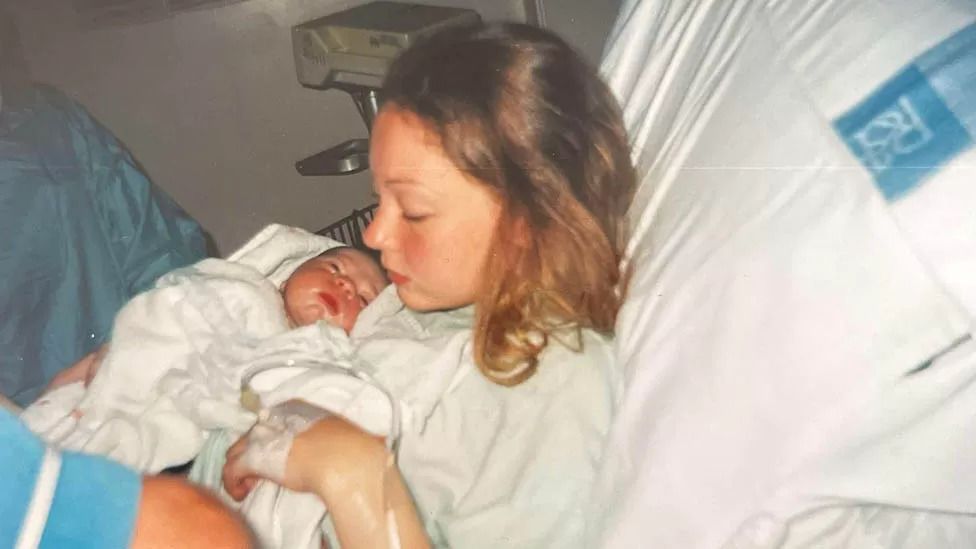 Sammy with her son
Sammy with her son
The year is 2013, and Sammy has only recently explained to her 12-year-old son the truth about what happened and how he was conceived - how the man he called dad, Arshid Hussain, had raped and abused her from when she was 14. He groomed her to believe they were in a relationship. Hussain, who was 24, did the same to many other girls too.
But Sammy is finally free from the fog of his control. She has begun speaking out about the failure of services to protect her, and more than 1,000 other children, from sexual exploitation in Rotherham, South Yorkshire.
Hussain is being investigated by police, and Sammy's son's DNA is part of the evidence against him.
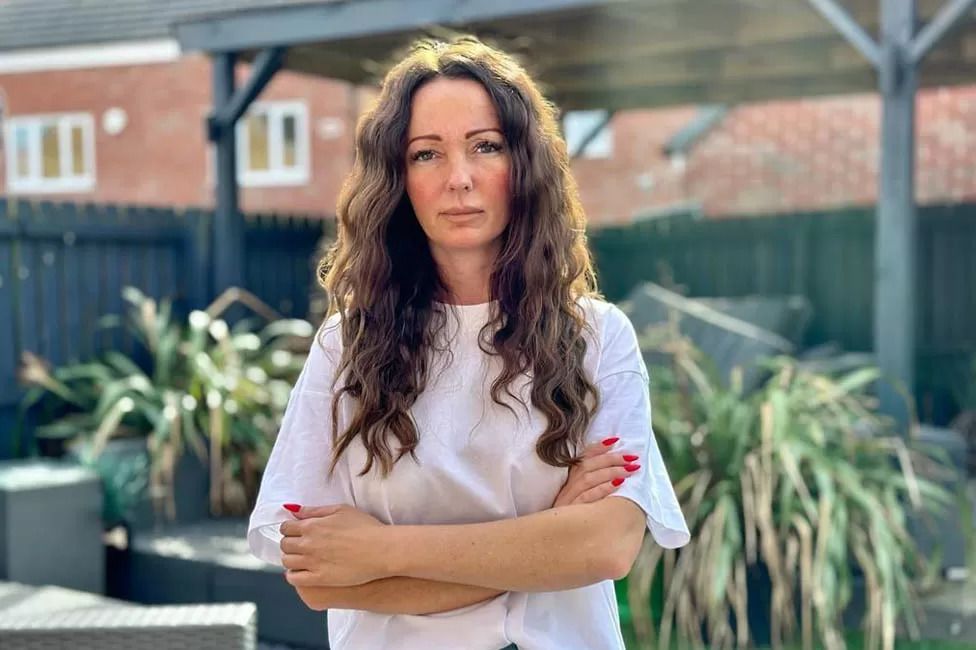 Sammy
Sammy
But Sammy can see how much her son is struggling with what it all means. He is questioning everything - was he wanted? Was he loved?
The case is all over the national news. It is all so public and they feel so alone.
Sammy has tried to be the best mum she can, but she feels like it is all her fault.
She slumps down on the kitchen floor and cries. She loves her son so much, but she feels like he would be better off without her.
Like Tasnim and Neil, Sammy struggles for years alone without anyone knowing how she feels.
It is only in 2021, when she meets another mother - Mandy - that she finally is able to talk freely with someone who truly understands.
By now, Hussain is serving a 35-year jail sentence. Sammy is sitting at Mandy's kitchen table in Halifax, with Mandy's dog Toffee curled up under her chair. Mandy tells Sammy her story. It is still painful, even after 30 years.
Mandy's first memory of the abuse was when she was 11. Her father, respected in the community as a police special constable and Salvation Army member, had undressed and got into the bath with her.
From then on it was every other night. He would tiptoe into her bedroom. Mandy did not dare tell anyone. He was terrifying and she felt trapped.
Then one day she realised she was pregnant.
"It's like if you inject poison into somebody. That's what my father did to me, he injected our own genes into me," she tells Sammy. She didn't know what to do.
But when her father found out, Mandy was not left with a choice. She would have the child, and it would call him Daddy.
Her father was there in the delivery room when she gave birth. The midwives passed her newborn son to him.
"That just destroyed me. He held my child first," Mandy says. "I was just thinking, 'Get your hands off him, keep away.'
"He was my baby, he was precious. I was going to protect him forever."
So when Mandy saw her chance, she put some nappies and baby milk in the pram, walked out the door, and never went back.
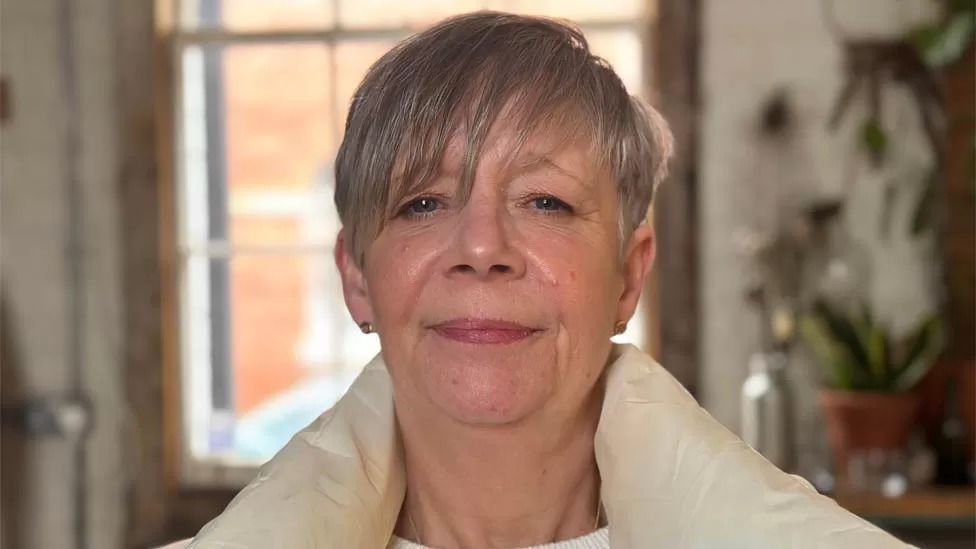 Mandy
Mandy
Sammy asks her if she thinks it is different having a child conceived through abuse, compared with a child born from a happy relationship.
"Yes," Mandy says. "He wasn't conceived out of love. He wasn't conceived out of my love. He was conceived by a monster.
"But by God I love him."
Mandy's son was formally adopted by her husband Pete. They now live happily together with their other children.
But although Mandy escaped her father's abuse, she couldn't escape the consequences. Her son was born with a genetic disability.
Thirty years on, she still cares for him 24 hours a day. He loves his PlayStation and wrestling. He doesn't have the capacity to understand that he was born from abuse, and Mandy is grateful she hasn't had to explain. But it has affected his whole life.
"I always say I'm the survivor, my son's the victim," Mandy tells Sammy.
"He didn't ask to be born that way. Because a crime happened to me, it happened to him too."
Until she and Sammy found each other, both felt they were on their own.
"What Mandy has shown me is that no matter what you go through, you can move forward and be happy," says Sammy. "People need to talk about this."
Finally, campaigners say, the issue is being brought into the spotlight. The government's proposed reforms in the Victims Bill - dubbed "Daisy's law" after a campaigner who was born after a rape in the 1970s - are long overdue, activists say.
For Neil and Tasnim, the planned changes are also an acknowledgement that voices like theirs are finally being heard.
And they hope speaking out will show others conceived by rape they are not alone.
"There is a lot of stigma, but there shouldn't me," says Tasnim. "It's not about who you're related to, I'm my own person. And it's not my fault. I was just affected by it.
Talking openly is her way of keeping her mum's memory alive. Their story was not destined to be a tragic one, Tasnim believes.
"I suppose if I could speak to my mum, I'd want her to know how brave she was," Tasnim says.
"And just to tell her everything's OK. I'm OK."















